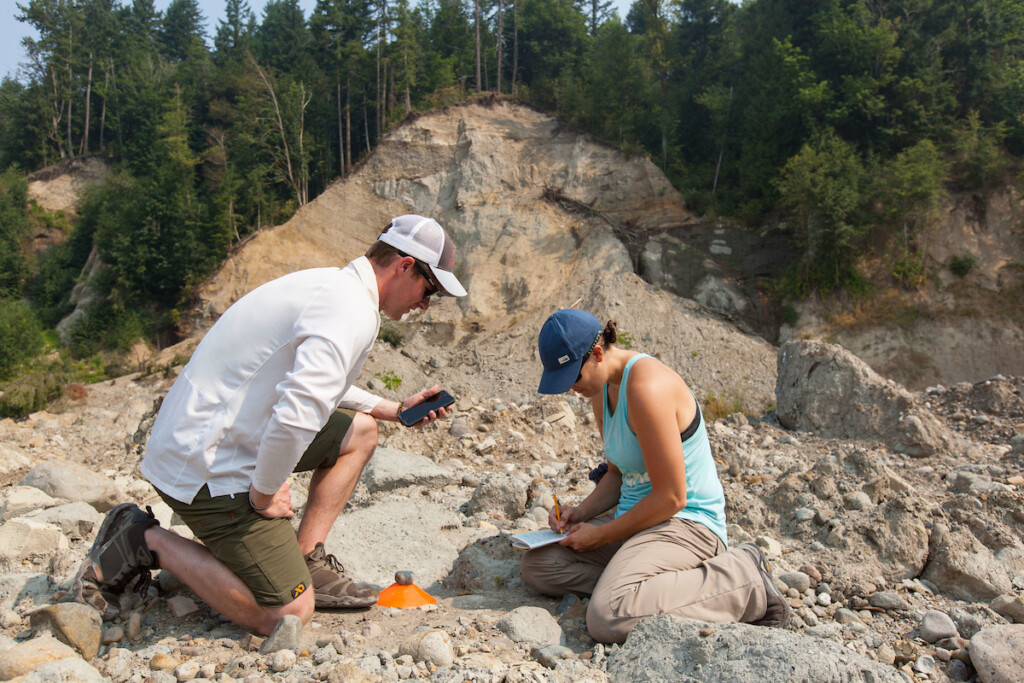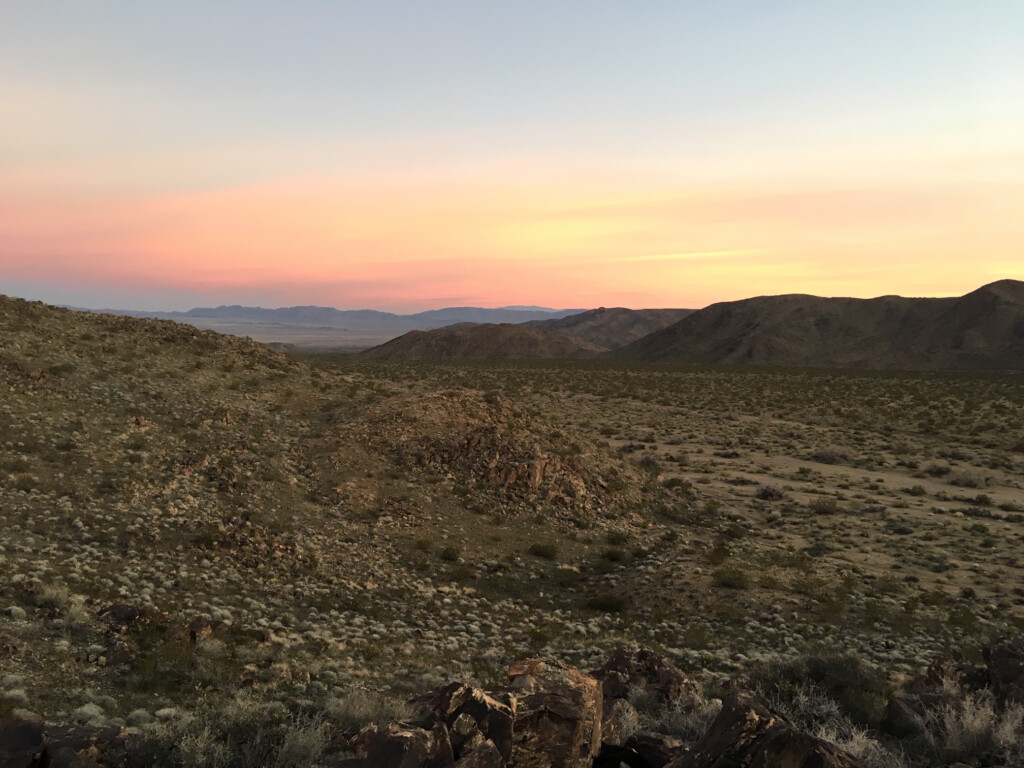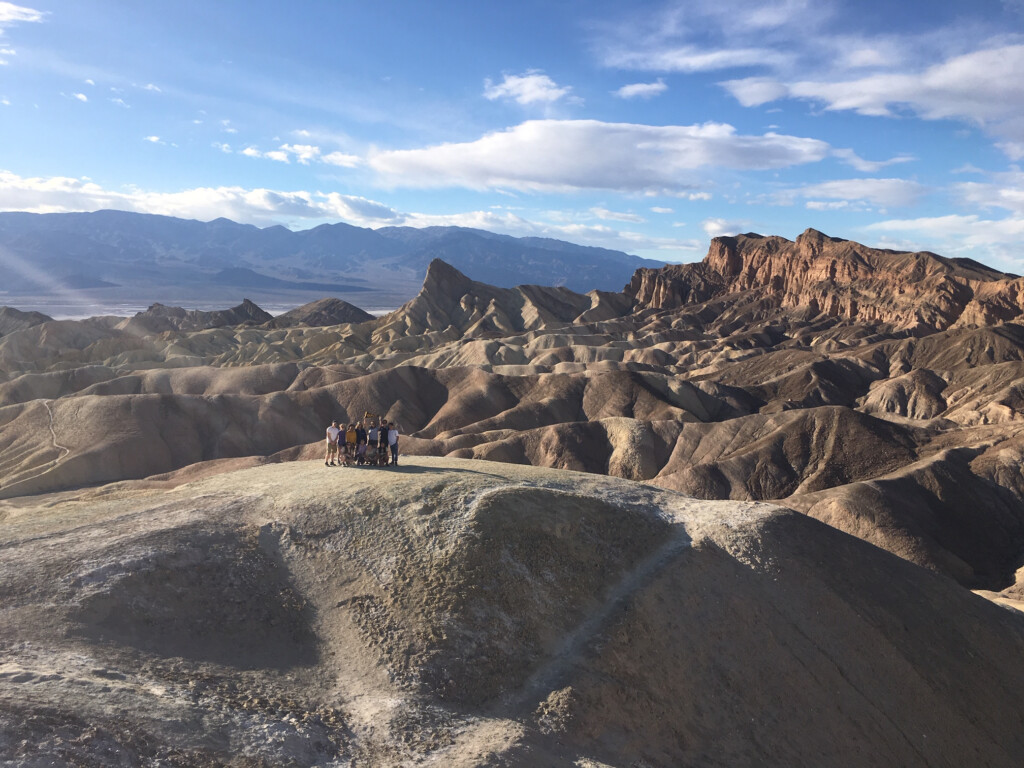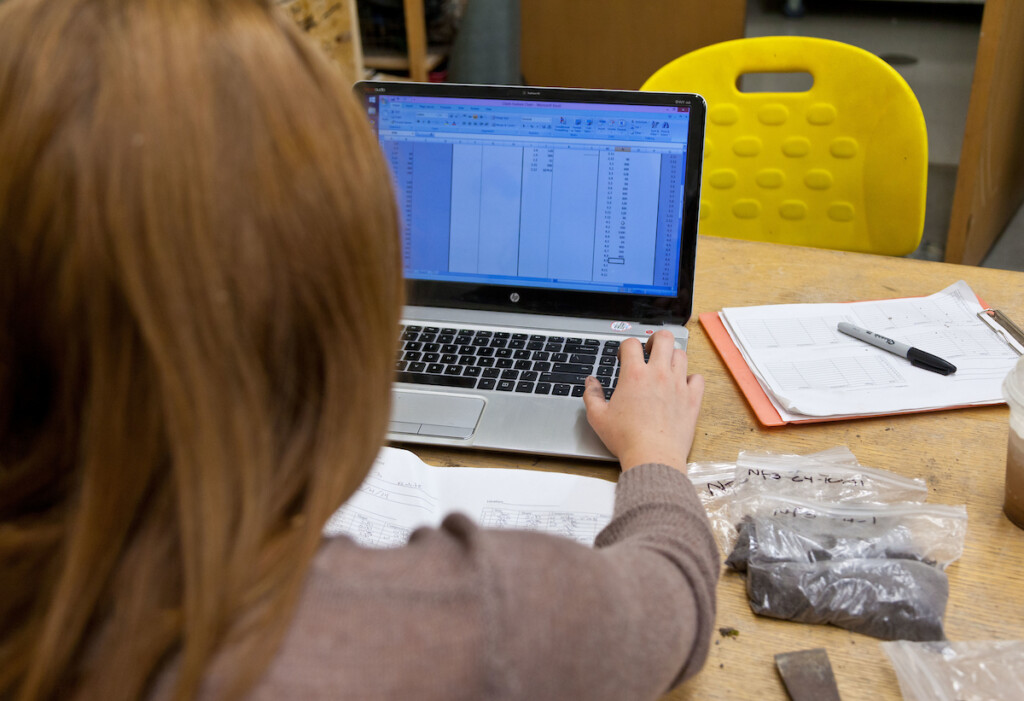Why Study Earth Science?
Global society is based on geology. Our energy resources, construction and manufacturing materials, food and agricultural products, and building sites all depend on the geologic environment. Dramatic geological processes such as earthquakes, volcanic eruptions or floods impact many areas of the world. Less dramatic but ongoing processes such as rivers, wind, soil erosion and glacial movement sculpt the landscape and change how humans use the Earth’s surface. Geology brings long-term perspectives to these issues, as we study how processes such as continental drift and climate change influence the earth and our lives.
The earth sciences are distinct from other natural sciences. The study of the earth is interdisciplinary and historical, bringing knowledge from many other fields to help answer questions. Geoscientists investigate continents, oceans and the atmosphere, and emphasize both the processes that change the earth through time and the results of those processes, such as mountain ranges, ocean deeps and craters. Our fast-growing population requires understanding of the many relationships between humans and the earth. Earth Science provides you with the opportunity to deal with a broad range of scientific challenges and experiences.
Why Study Earth Science at PLU?
PLU offers a unique setting for the study of earth science. The natural environments of the Pacific Northwest are unsurpassed in providing a rich variety of regional geologic features. Geologic field studies are an integral part of both introductory and advanced courses in earth science at PLU. The Cascade Mountains, the Columbia River Basalt Plateau, Puget Sound, the Pacific Ocean coast and the Olympic Peninsula are all within a few hours of campus.
Longer field trips are taken to geologic sites such as Death Valley, Hawaii, Yosemite, Grand Canyon, Zion, Bryce, Grand Teton and Yellowstone national parks.
The student/faculty ratio in the Department of Earth Science at PLU allows students to work closely with faculty in classes, laboratories, and field studies. Faculty members are available to work individually with students in small seminar groups and on research projects.
Located in the Rieke Science Center, the Department of Earth Science has well-equipped classroom spaces and laboratories to support student and faculty research. Equipment includes a research-grade Zeiss scanning electron microscope (SEM) with an elemental analysis detector (EDS), a Geographic Information System laboratory, and a research-level optical microscope. The department maintains equipment, such as a Global Positioning System, portable receiver and base station, for mapping and field studies. Geoscience students also can study groundwater using five PLU owned observation wells. The department shares stream sampling equipment and other field gear with the environmental studies program. A sample preparation laboratory makes on-site handling of geologic samples possible. Extensive mineral, fossil, and rock collections are maintained and housed within the department.
Internships for students are available through local industries and government agencies.
Areas of Emphasis
Bachelor of Arts
If you’re interested in a broad degree program that offers greater flexibility and is well suited to combining with another major or minor, the B.A. is for you.
Bachelor of Arts in Education
If you want to teach earth science in elementary or secondary schools, you’ll need this degree.
A minor in Earth Science is also offered. Both the B.A. and B.S. programs are flexible. All degree programs in earth science rely on supporting course work in other basic sciences and mathematics. Students intending to major or minor should plan to talk with a faculty member early in their program about required supporting courses for their degree.







Social Media